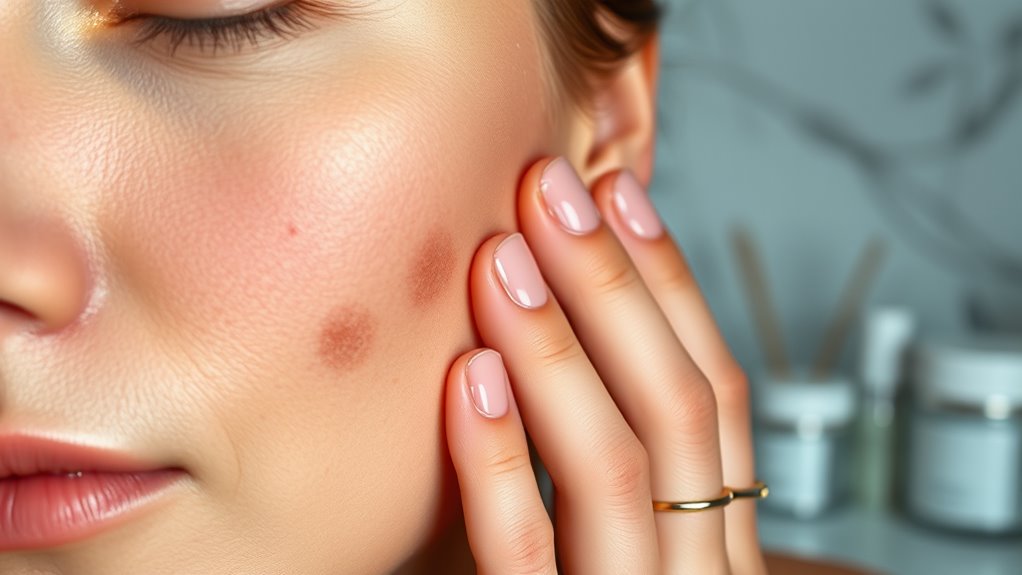The Ugly Truth About Dark Spots – And How to Fade Them Fast
Dark spots can be a frustrating reminder of sun exposure or hormonal shifts. You might think quick fixes exist, but the reality is more complex. Understanding the root causes is essential for effective treatment. Rather than relying on myths, you’ll need a strategic approach. Let’s explore the most effective ingredients and lifestyle changes that can make a difference, as well as professional options that offer faster results.
Understanding the Causes of Dark Spots
What causes dark spots on your skin? These hyperpigmented areas often arise from sun exposure, hormonal changes, or skin injuries.
When your skin produces excess melanin in response to UV rays or inflammation, dark spots can develop. Age spots, melasma, and post-inflammatory hyperpigmentation are common types.
Genetic factors may also play a role in your susceptibility to these spots. To effectively prevent dark spots, it is crucial to incorporate sun protection strategies into your daily skincare routine.
For effective dark spot removal, it’s essential to identify the underlying cause. Treatments can include topical agents like hydroquinone, retinoids, or laser therapies, which target melanin production and promote skin turnover, helping to reduce the appearance of those stubborn dark spots.
Common Myths About Dark Spot Treatments
Here are three common myths:
-
All treatments work equally: Not every treatment is effective for every skin type. Individual responses vary significantly.
-
Immediate results are possible: Fading dark spots takes time; expect gradual improvement rather than instant results.
-
Natural remedies are always safe: Just because something is natural doesn’t mean it’s effective or free of side effects.
Additionally, many people overlook the importance of avoiding common dark spot mistakes that can hinder their treatment efforts.
Effective Ingredients for Fading Dark Spots
When it comes to fading dark spots, certain ingredients stand out for their proven effectiveness. Here are some key ingredients to look for in your skincare products:
| Ingredient | Function |
|---|---|
| Hydroquinone | Inhibits melanin production |
| Vitamin C | Brightens skin and evens tone |
| Niacinamide | Reduces inflammation and dark spots |
Using these ingredients consistently can significantly reduce the appearance of dark spots. Always patch test new products and consult a dermatologist if you have concerns. With the right ingredients, you can achieve a clearer, more radiant complexion in no time. Additionally, consider incorporating gentle natural remedies into your skincare routine as they can complement these effective ingredients.
Lifestyle Changes to Prevent Dark Spots
Incorporating lifestyle changes can significantly aid in preventing the formation of dark spots.
Here are three effective strategies to consider:
-
Sun Protection: Always apply a broad-spectrum sunscreen with at least SPF 30 daily, even on cloudy days. Reapply every two hours when outdoors.
-
Healthy Diet: Consume a diet rich in antioxidants—fruits, vegetables, and whole grains can help combat oxidative stress that contributes to skin damage.
-
Hydration: Drink plenty of water to maintain skin elasticity and promote overall skin health, reducing the likelihood of dark spot development. Additionally, understanding the difference between dark circles and dark spots can help you identify and address skin concerns more effectively.
Implementing these changes can lead to healthier, more radiant skin.
Professional Treatments for Rapid Results
Are you looking for quicker solutions to fade dark spots? Professional treatments offer effective options for rapid results.
Chemical peels help exfoliate the skin, removing layers of discolored cells.
Laser therapy targets melanin, breaking it down and promoting even skin tone.
Microdermabrasion gently sands away the outer skin layer, revealing fresher skin beneath.
Additionally, intense pulsed light (IPL) therapy reduces pigmentation by using light energy.
Each treatment carries unique benefits, so consulting a dermatologist is essential to determine the most suitable approach for your skin type. It’s important to note that dark spots differ from acne scars, as they stem from increased melanin production rather than tissue damage.
With these professional interventions, you can achieve noticeable results in a fraction of the time.





